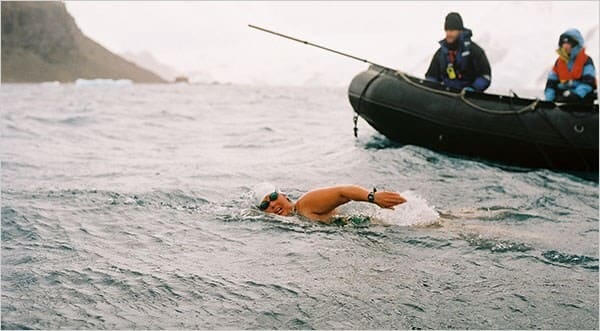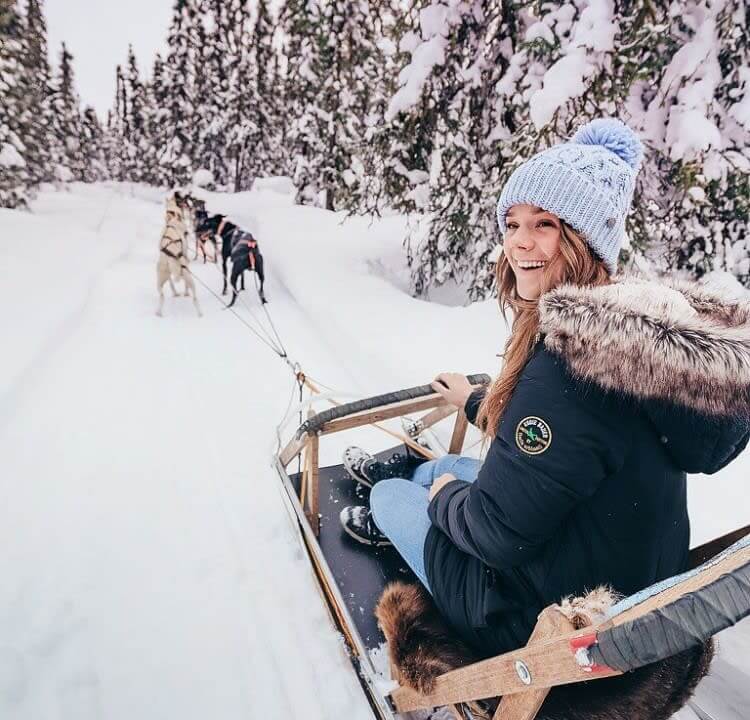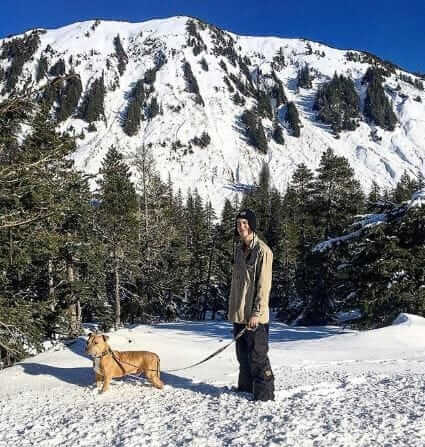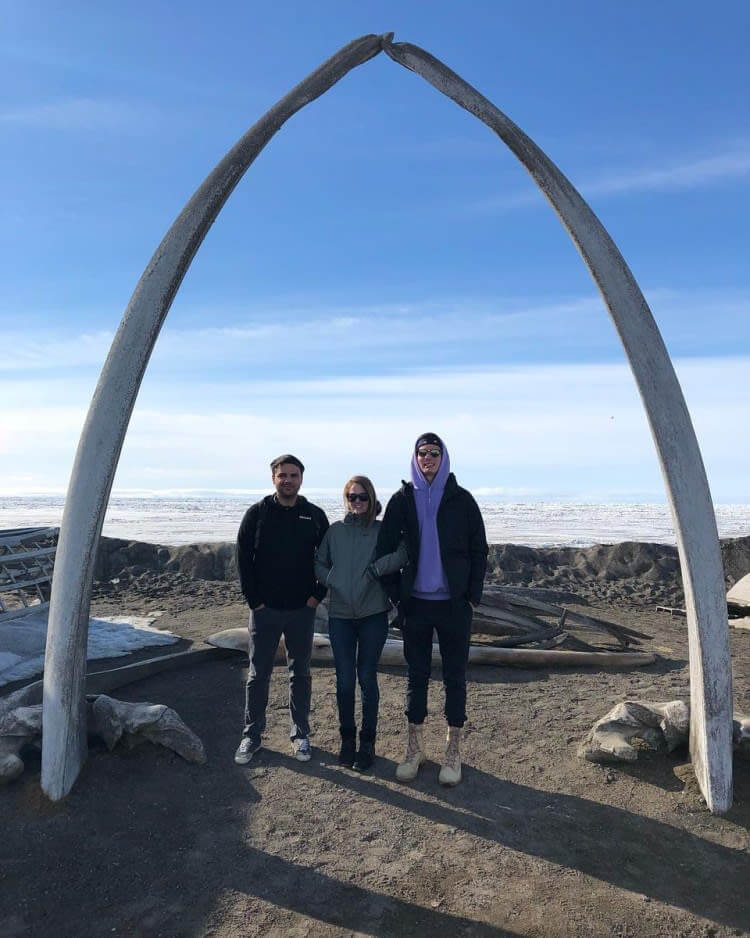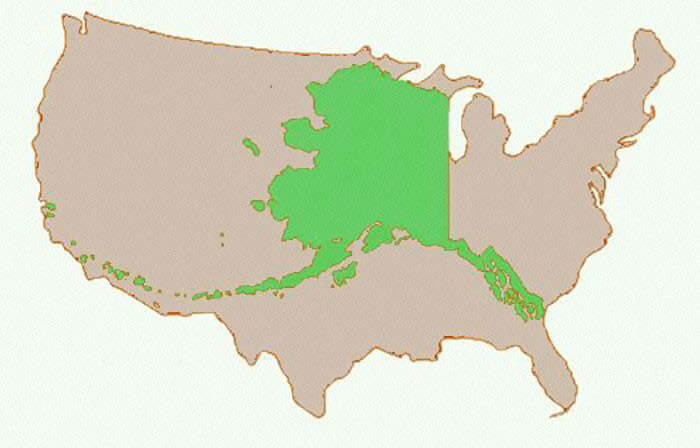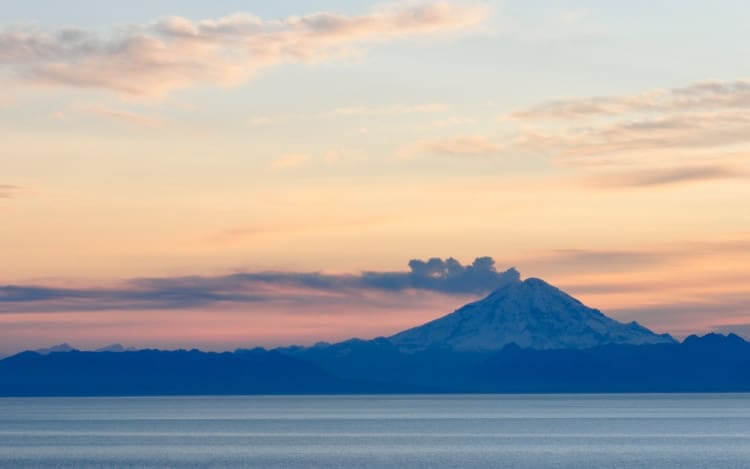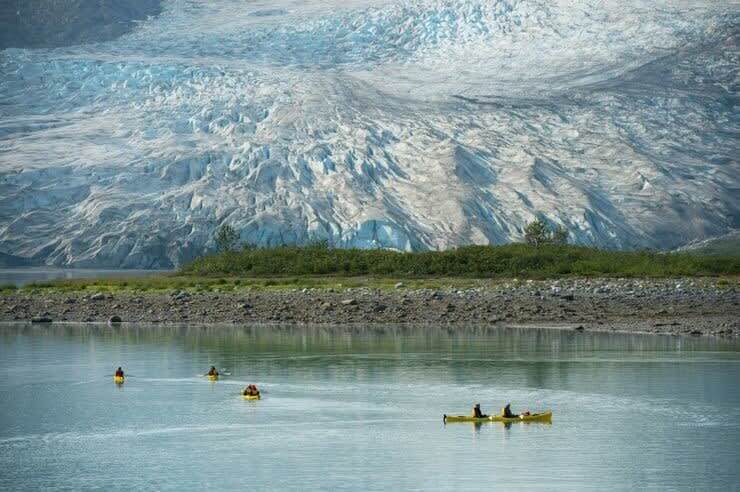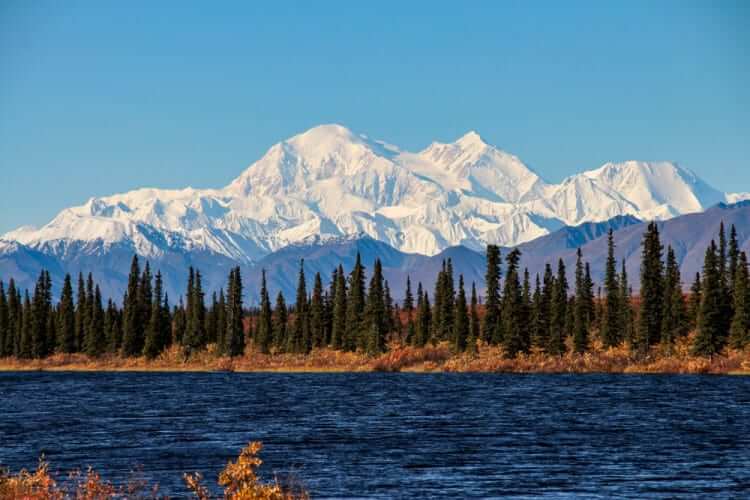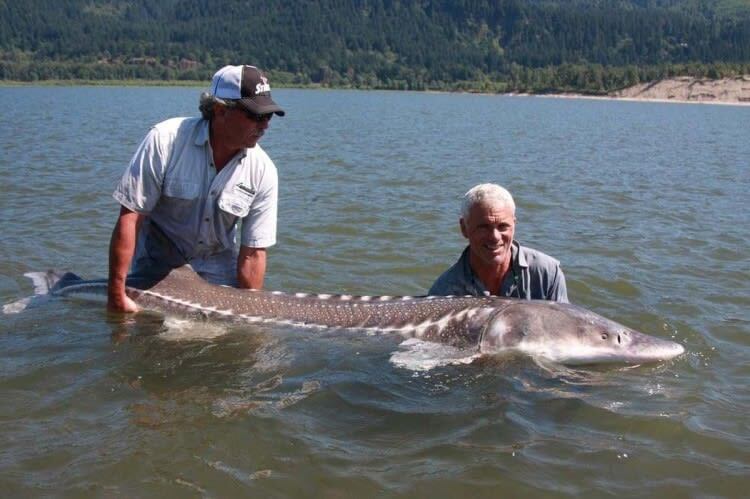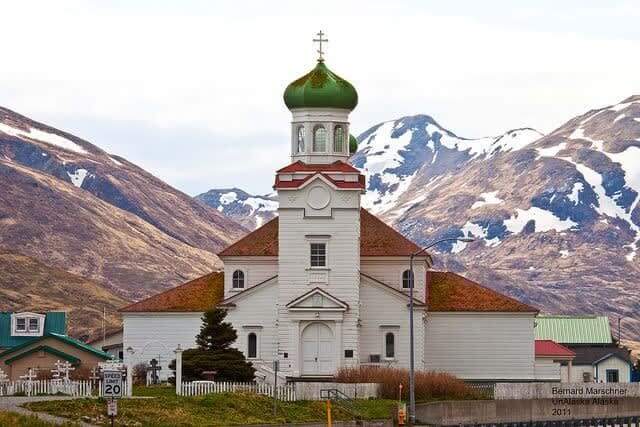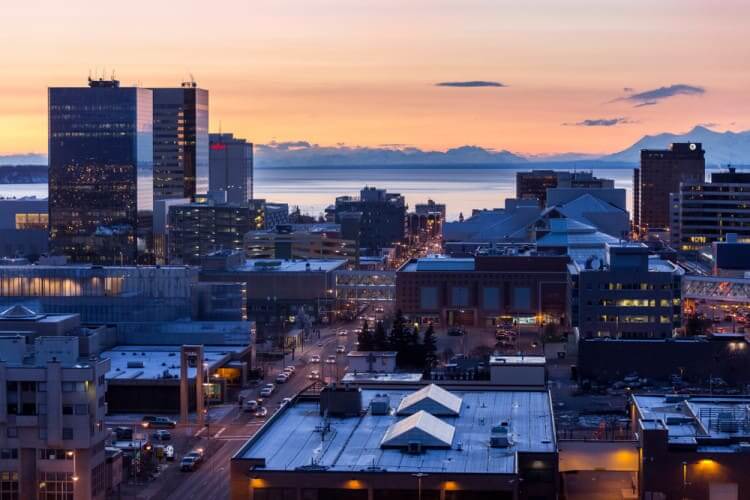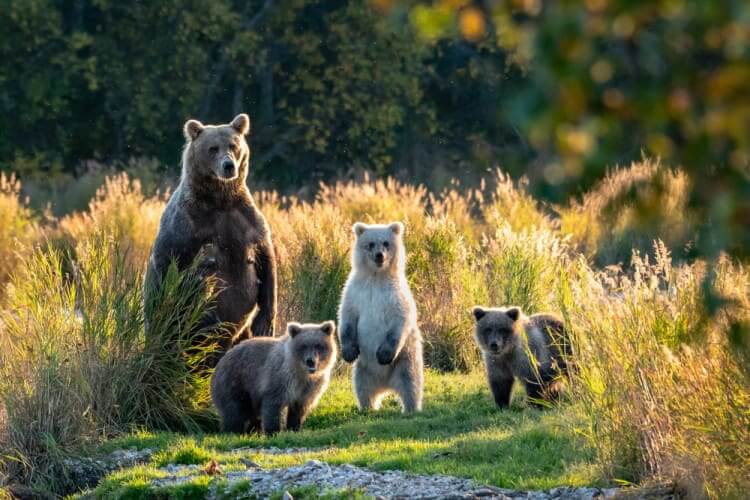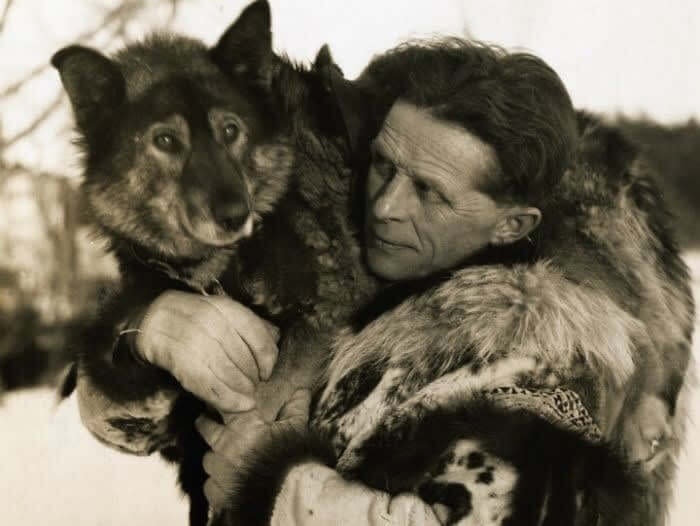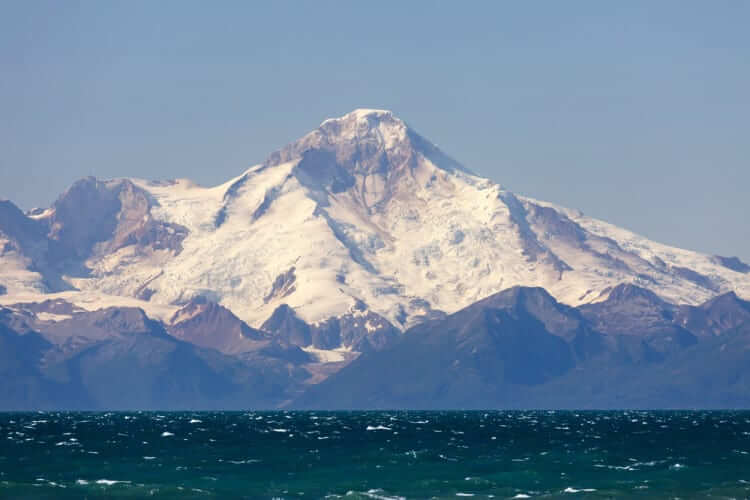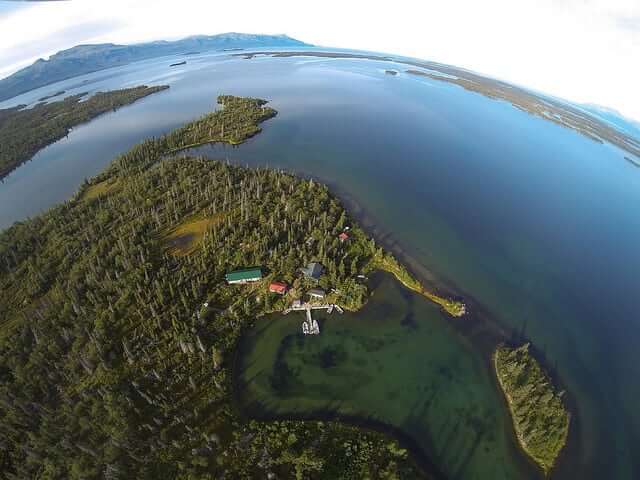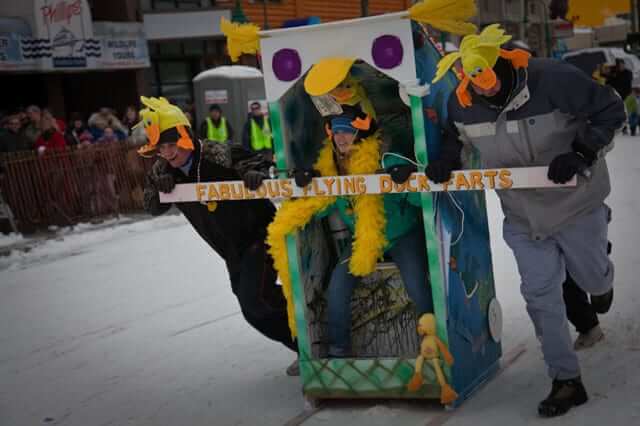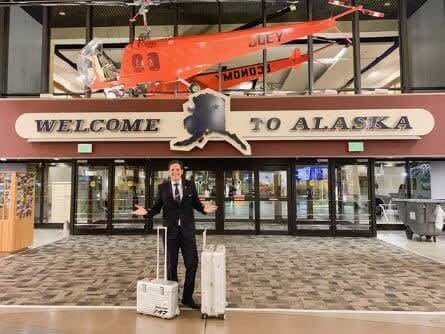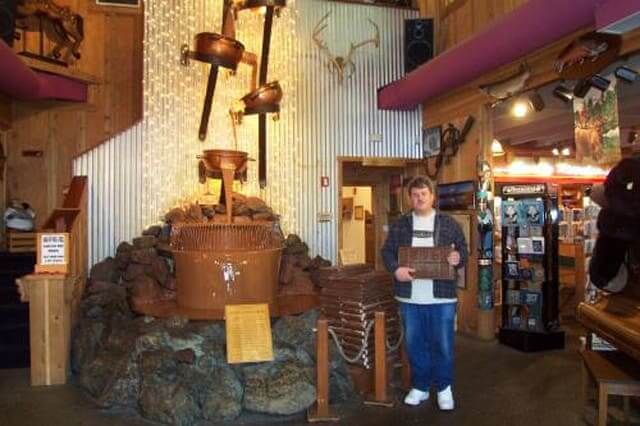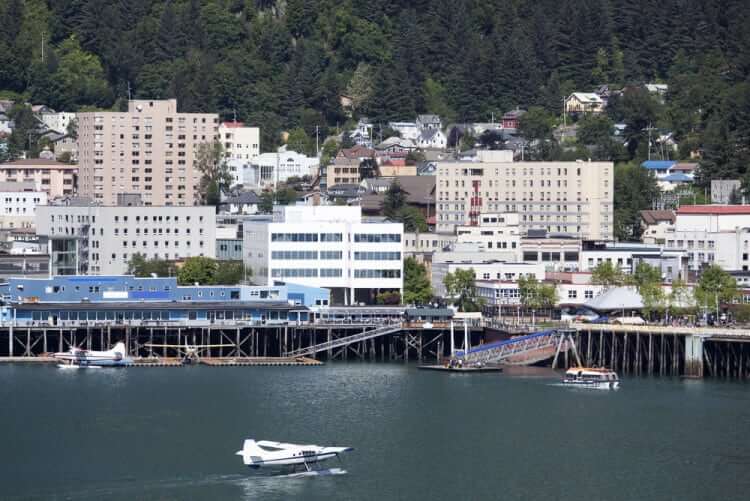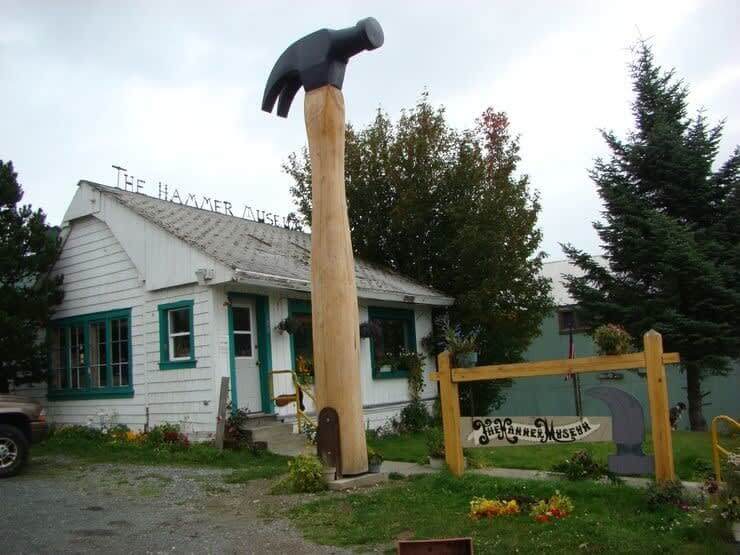1. You Can Swim From Alaska To Russia
Alaska and Russia are separated by the Bering Strait, which is 51 miles wide at the most narrow point. Within the Bering Strait is the Russian island of Big Diomede and the United States island of Little Diomede. These Islands are two and a half miles apart. Big Diomede is 21 hours ahead of Little Diomede, so you can technically look into the future from one island.
On August 7, 1987, Lynne Cox swam for two houses and five minutes from Little Diomede (US) to Big Diomede (Russia). At the time, it was then part of the Soviet Union. Her accomplishment was met with praise from US President Ronald Reagan and Soviet leader Mikhail Gorbachev.
2. Dog Sledding Is The States Official Sport
Using dogs to pull sleds has been used in Alaska for centuries, and it was even a method of transportation in many parts of the state. The official state dog is the Malamute, which is a large dog bred for their strength. They can haul heavy freight, so they are the perfect sled dog. People come from all over the world to compete in do racing. In 1972, it was officially declared the state sport.
Each year, people come to compete in the Iditarod Trail Sled Dog Race. It takes between 8-15 days, and the trail is 938 miles long. The mushers start in Anchorage and head to Nome. Disney's Snow Dogs was based on the Iditarod race.
3. An Alaskan Town Had A Cat As Mayor
In a town called Talkeetna, there was a cat who was the honorary mayor from July 1997 to July 2017. Stubbs, the ginger cat, was found with other kittens in a box, and a write-in campaign later elected him by the town's residents. The city was so small that it had no mayor of its own.
The town's residents created the campaign because they opposed human candidates. Stubbs was even featured in an effort to protest the 2014 US Senate race in Alaska. There was a video with Stubbs hilariously criticizing both the candidates.
4. Alaska Has The Largest National Forest In The US
On the southeast coast of Alaska is the Tongass National Forest, which is the largest national forest in the United States. It is 16.7 million acres, which is almost half the size of Florida. The forest is home to many endangered plants and wildlife.
There are many things to see and do within this massive forest. You can visit glaciers, see wild bears, go fishing, and so much more. The Tongass is home to humpback whales, otters, beavers, and wolves. There are also blad eagles living within the forest.
5. Fruits And Vegetables Grow Larger In Alaska
Due to its position on the globe, parts of Alaska get around 20 hours of sun per day. Therefore, plants are significantly benefited, allowing them to grow larger and sweeter. This extra sunshine allows plants to generate more energy than normal photosynthesis.
The seeds are selected very carefully to grow large in those conditions. Some of the most notable produce harvested in Alaska has been a 35-pound broccoli, a 65-pound cantaloupe, and a 138-pound cabbage. People can see these massive fruits and vegetables at the Alaska State Fair. Sometimes, the produce is so larger; viewers have a hard time figuring out what they are.
6. Alaska Means "Great Land" In Aleut
The Aleut are the indigenous people of the Aleutian Islands in Alaska, and they gave the state its name. More than 24% of Alaska's population are native people. Many of them came across the Bering Strait long before the United States bought the land.
Alaska is a great land because of its vast diverseness. You can see sand dunes and snow within miles of each other, and there is incredible wildlife that has a well-preserved home.
7. There Is A Town Where Everyone Lives In One Apartment Building
In Whittier, Alaska, there is a small town tucked between beautiful mountains that has two buildings. One building is abandoned, while the other is an old army barrack that houses the towns, 200 residents. The city is almost inaccessible to the outside world besides by sea or a long, single-lane road through the mountains.
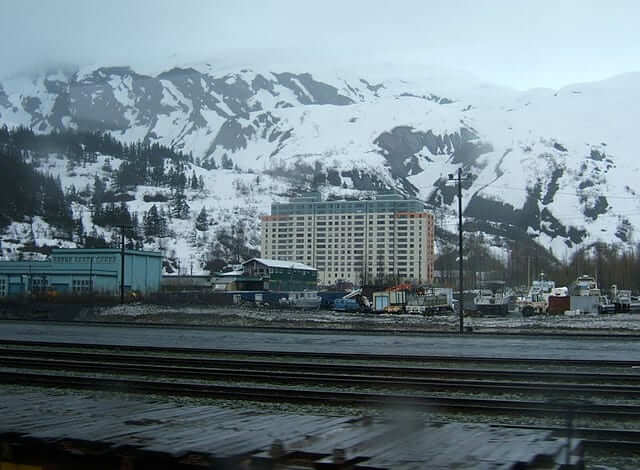
Everything necessary is in this one building. The police station is by the entrance, and the post office is down the hall. The weather in this area is brutal, with winds up to 60 mph, so residents have everything they need in one building. There is even a bed and breakfast in the building that provides binoculars to guests so they can watch whales breaching on the harbor-side and goats grazing on the mountains.
8. Alaska Gets About 10,000 Earthquakes Each Year
Alaska is the most seismically active place in the world, and the Alaska Earthquake Center has reported more than 150,000 earthquakes over the last five years. This is due to the position of the state along a fault line that triggers earthquakes.
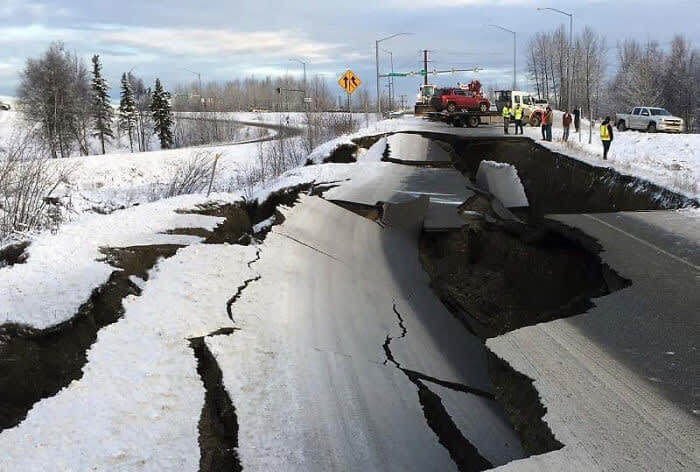
Buildings have stringent codes in Alaska, so there isn't much damage done to homes, but we can't say the same for their roads. Some of the world's worst earthquakes have taken place in Alaska, but since many areas aren't inhabited, there wasn't much damage.
9. Alaska Would Cover Most Of The Continental US States
Despite how it is shown on most maps of the world, Alaska is rather large. If you were to lie it on top of the continental United States, it would cover 21% of southern states, and most of the midwest. It is much larger than Texas and widely underappreciated.
Alaska is 2.6 times larger than France, 3.4 times larger than Spain, 4.8 times larger than Germany, and 5.7 times larger than Italy. People often forget about Alaska because it does not share any borders with other States in the US. The borders are to British Columbia and Yukon Territory.
10. 2,250 People Go Missing In Alaska Each Year
There is a phenomenon in Alaska about people going missing while doing ordinary things. Also, Alaska often attracts dropouts, runaways, and people who are fed up with life. Since 1988, the authorities have reported 60,700 missing person cases.
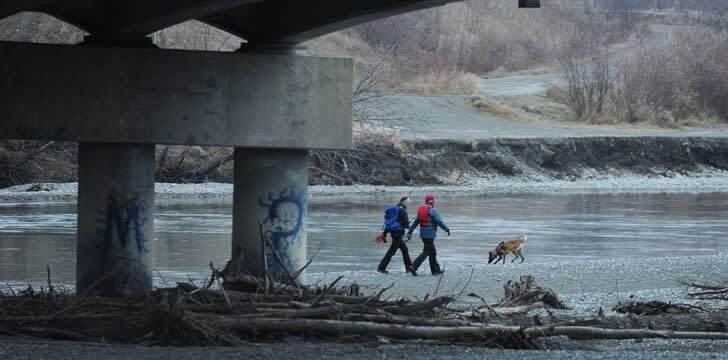
There are twice as many missing people reports in Alaska than the rest of the United States. Since there is so much open land, it is hard for search and rescue teams to look for people once they are reported missing.
11. This Igloo Is Worth More Than Most Houses
This giant Igloo shaped building was built in the '70s as a tourist attraction but never ended up opening because it never met building codes. Many different people have bought it, but no one was able to open it. You could purchase this dilapidated building for a coll $300,000. Vandals have destroyed the inside, so it is not worth that much.
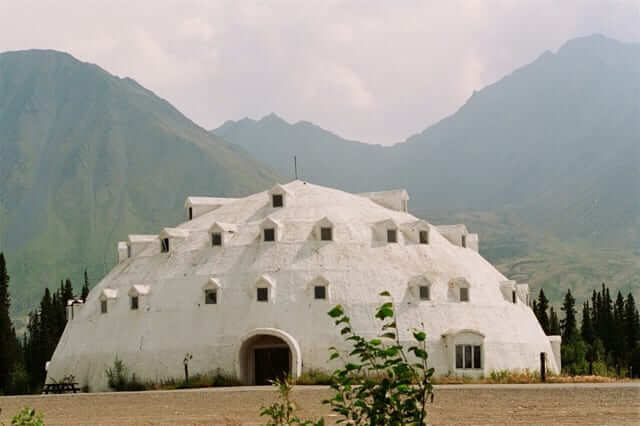
Today, the building is padlocked and boarded up so that no one can vandalize the inside anymore. Although this building never opened, it is still a huge tourist attraction, and people stop to take pictures in front of the giant igloo when they drive by.
12. Alaskan Residents Are Paid To Live There
Alaska has so many natural resources that, in 1976, the Alaska Permanent Fund was established. The fund manages the surpluses of state petroleum revenues from the oil industry, and it is set up to grow through investing in other areas. Each year a dividend is paid to eligible Alaskan residents.
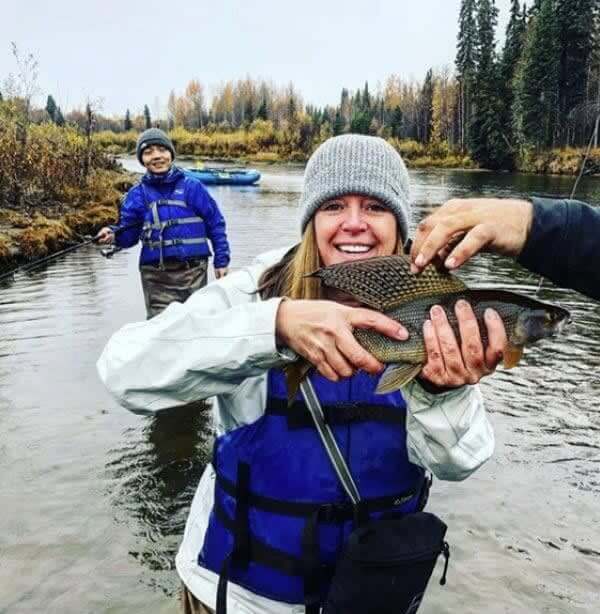
To be eligible for the dividend, you have to have lived in Alaska for more than a year, maintaining permanent residency without criminal convictions. The dividend changes yearly, but in 2019, it was $1,606. While it is not a ton of money, it is still a useful amount of money.
13. The Flag Was Designed By A 13-Year-Old
Alaska's state flag was designed by 13-year-old Benny Benson, who participated in a contest for young children to create the flag in the late 1920s. There were 142 submissions, and a panel of judges agreed that Benson's design of the Big Dipper and the North Star on a field of blue was the winner.
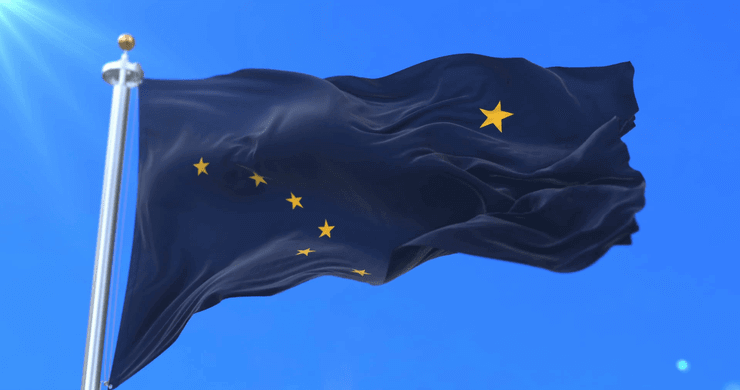
Alaska's flag flew for the first time on July 9, 1927, during a ceremony where Benson received a watch with the flag emblem and a $1,000 scholarship. The state wasn't adopted into the union for another 30 years.
14. Alaska Has Its Own "Bermuda Triangle"
Speaking of missing people, there is a vast region of Alaska known as the "Bermuda Triangle." Planes go down, hikers go missing, and residents and tourists seem to vanish into the untouched beauty of the varying landscapes—the triangle slices through Anchorage, Juneau, and Barrow.
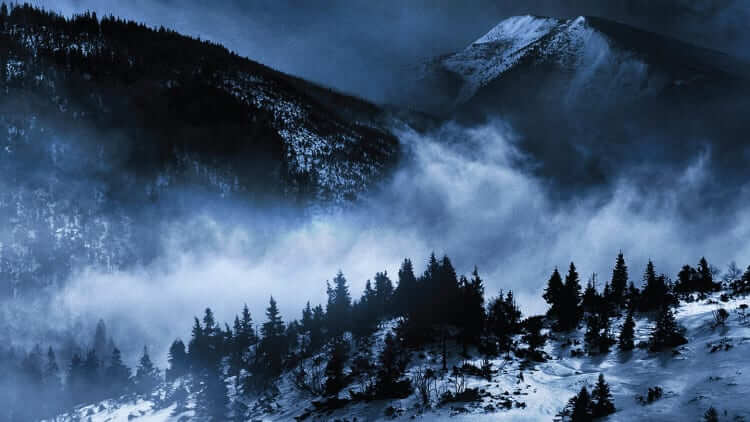
Native Alaska Tlingit Indians that live near Juneau have even integrated this mystery into their religious culture. They believe that an evil spirit named Kushtaka captures people who have drowned or gotten lost and takes them away to his realm, never to be seen again.
15. The Sun Doesn't Set For Three Months
If you had to sit down and write a list of things you took for granted each day, the length of a day probably wouldn't be on that list. Each day we get roughly 12 hours of daylight and 12 hours of nighttime unless you live in certain parts of the world like Alaska. Alaska's nickname is "land of the midnight sun" for a reason.
From May to August, the sun does not set, so there are 84 days of straight sunlight. Then, in the winter from November to January, the sun does not rise for the same amount of days. This is due to the earth's axis and Alaska's position on the globe. Blackout curtains must be very popular in Alaska.
16. Alaska Has More Coastlines Than Any Other State
Alaska has the most extensive coastline of any other state in the nation. The state's coast stretched 6,640 miles, a distance greater than that of all other states' coastlines combined. Alaska has 33,904 miles of shoreline, and the shoreline is in three different oceans, the Arctic Ocean, the Pacific Ocean, and the Bering Sea.
To put Alaska into perspective, it is twice the size of Texas. The different parts of the coastline have different weather types, so each area has something unique to show off.
17. Alaska Has The Highest Mountains In The US
Alaska is home to some of the most beautiful sights in the world, and the mountains there definitely don't disappoint. The five tallest mountains in the US lie within Alaska. Denali Mountain has the highest peak, at an incredible 20,310 feet high. Denali means "the tall one" in the local indigenous language Koyukon.
According to Alaska Yukon, the peak Denali is so tall it often creates its own weather. Four of the other highest mountain peaks are also in Alaska, and they are Mount Saint Elias, Mount Foraker, Mount Bona, and Mount Blackburn.
18. The Northern Lights Can Be Seen 243 Days A Year
While many people believe they have to travel as far as Iceland to catch a glimpse of the Northern Lights, there is actually a better chance of seeing them in Alaska. In Fairbanks, Alaska, the Northern Lights are visible 243 days a year, and this is known as Aurora Season. The season begins in August and lasts till April.
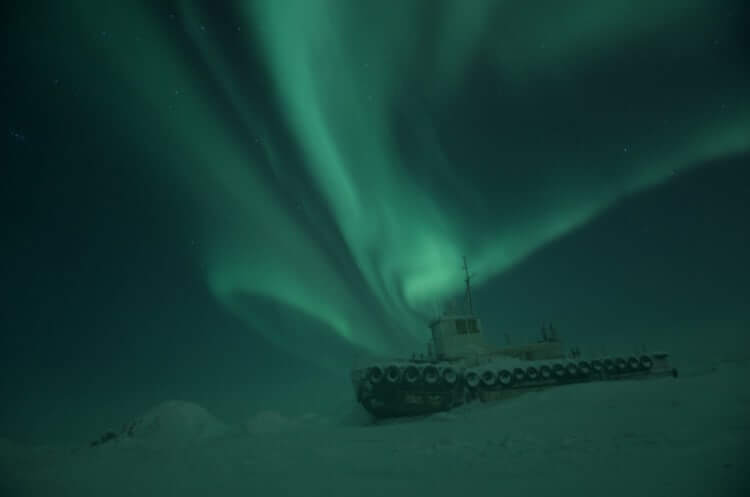
Visitors can see the waving colors against the dark night sky because Fairbanks is located under the "Auroral Oval," which is a ring-shaped zone over the far north. Fairbanks is also known for its clear sky, which allows for ample visibility of the Northern Lights.
19. There is a Legendary River Monster In One Of The Lakes
In Alaska's largest lake, Lake Iliamna, people have claimed there is a monster lurking in the depths waiting to attack. The monster is commonly referred to as Illie, and it is said to be between 10 and 20 feet. While there is no hard evidence that proves the existence of this so-called "beast," people have recorded many sightings throughout history.
Many people believe that the lake monster is a giant white sturgeon or a sleeper shark, but it is more exciting to believe the legends of a monster. Jeremy Wade, the presenter of Animal Planet's River Monsters, was so intrigued by the myth that he did an episode about Illie. The only evidence they uncovered was that it was probably a white sturgeon.
20. Moose Laws Are Real
Moose are important to the people of Alaska, so there are laws to help protect them. Some moose laws include that you cannot push a live moose out of a moving airplane. Also, you cannot look or search for a moose from an airplane on the same day you plan to go hunting.
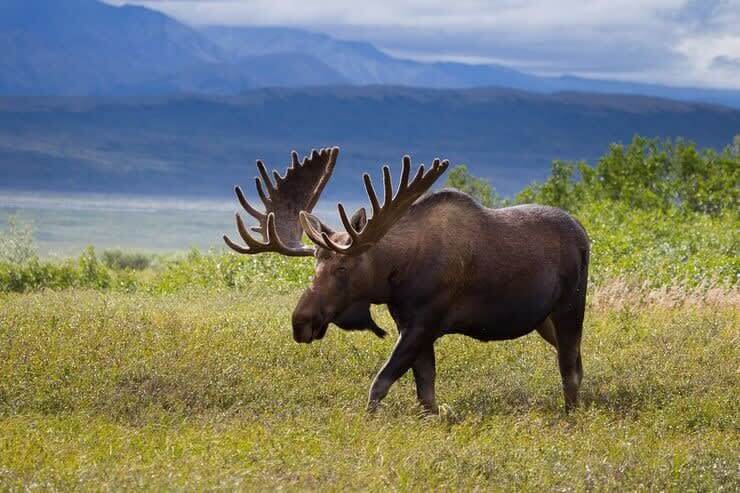
Other moose related laws include that you cannot whisper in someone's ear while they are moose hunting, you cannot give a moose an alcoholic beverage, and moose are not allowed to reproduce on city streets. It might be hard to enforce the last one since moose don't follow the rules set by the government.
21. Alaska Used To Be A Part Of The Russian Empire
According to some researchers, the colonization of Alaska by the Russian Empire began in the 17th century. Russian explorer, Vitus Bering, came ashore with several boats and founded a settlement there because they had decimated the populations of fur animals in Siberia and needed a new place to hunt. The first permanent settlement was founded in 1784.
When they came to Alaska, it took the Russians even less time to decimate populations of fur animals. By the mid-1800s, fur animal populations were severely depleted, and the colony was no longer profitable. Native Alaskans were extremely unhappy because the land was taken away from them. In 1867, Russia sold Alaska to the United States for a small price of $7.2 million. There are still remnants of the Russian Empire throughout Alaska.
22. 40% Of Residents Live In One Place
In Alaska, there is a stretch of highways and railways known as the "Railbelt," which runs from the southern shores to the center of the state. More than two-thirds of the population of Alaska have settled in communities, towns, and cities on this stretch of land.
On the southern end of the Railbelt lies the city of Anchorage, which is the largest city in the state. The town accommodates 40% of the population of Alaska. Many parts of the state are uninhabited, with miles and miles of open land.
23. The Largest Salmon Caught Was 97.5 Pounds
According to Seafood Health Facts, Alaska leads all other states when it comes to the US domestic seafood supply. In 2014, Alaska caught 60 percent of the countries seafood supply. From salmon and cod to shrimp and crabs, Alaska is the fish country, so it makes sense that the largest salmon was caught there.
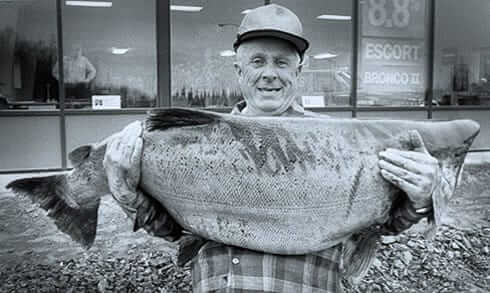
In the Kenai River on May 17, 1985, Les Anderson caught a 97-pound king salmon, which broke the world record for the biggest salmon. Before this record, the record was also held by someone who lived in Alaska. If you are looking for the best fishing spots, Alaska is the place for you.
24. There is 1 Bear To Every 21 People
With acres upon acres of untouched forests and enough salmon to supply to the rest of the country, Alaska has a thriving population of bears. There are many different species of bears from the brown bear to polar bears, Alaska has one bear to every 21 people.
Alaska is one of the final remnants of thriving North American wildlife, so many rare and endangered species reside within its vast wilderness. The bears are drawn to the salmon and other fish populations. Many people visit Alaska to catch a glimpse of these majestic creatures in their natural habitats.
25. Alaska Is Well Known For The Klondike Gold Rush
The Klondike Gold Rush was a mass exodus of prospecting migrants from the home to Canadian and Alaskan territory after gold was discovered there in 1896. The idea that people could get rich if they struck gold was enough for 100,000 people to abandon their homes and embark on a life-threatening journey across dangerous terrain.
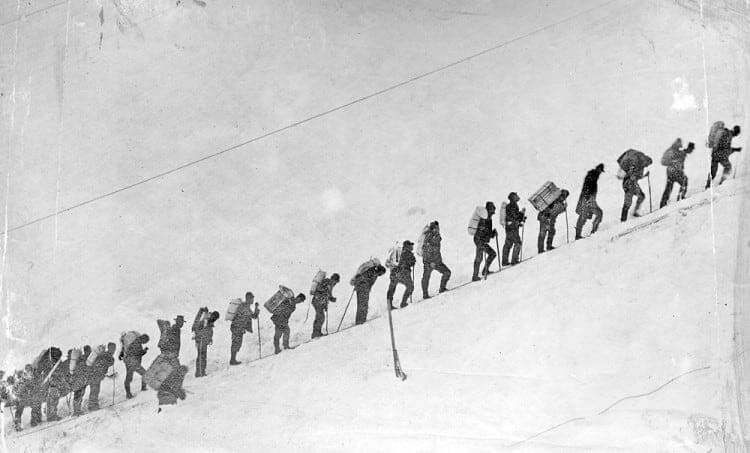
Less than half the people who began the journey made it to the area where there was gold. Most of the people who did arrive in Alaska were gravely disappointed to find out the available gold was greatly exaggerated, so many turned around and went home.
26. Multiple Teams Of Dog Sleds Helped Save An Entire Town
In 1925, a medical mission took place that consisted of 20 dog teams to carry medicine for diphtheria through -60 degree blizzards, through 700 miles of mountains, wilderness, and frozen ocean to save the town of Nome, Alaska. It was predicted that it would take three weeks for the medicine to arrive, which might have been too late to save the town.
About 150 dogs and 20 men pushed through it all, passing the serum off to the next team. One dog, in particular, was a true hero. Togo ran the longest leg of the journey; out of 700 miles, Togo and his team ran 300 miles. While everyone thought it would take a month, the medicine arrived in five days. Many people recognize Balto as the hero of the story because he was the dog that completed the last 55 miles, but Togo ran the longest, and he was already 12-years-old.
27. There Are More Than 40 Active Volcanoes In Alaska
Many people associate Hawaii with having the most Volcanos, but Alaska actually has 80 percent of all active volcanos in the United States. Since the 1700s, around 50 volcanoes have erupted and are active. Most of the active volcanoes are found along Cook Inlet, but volcanoes can be found in every region of Alaska.
In 1912, the eruption of Novarupta and Katmai formed the Valley of Ten Thousand Smokes on the Alaska Peninsula. It was the largest of the 20th century, and it dumped 700 feet of ash in a 40 square mile area.
28. There Are 3 Million Lakes In Alaska
Alaska is home to more than 3,000 rivers and three million lakes. It is the perfect place for kayaking and rafting. The biggest lake is Lake Iliamna, which is as long as Connecticut and 77 miles wide. Many of these lakes and rivers are full of fish, which makes it the perfect fishing destination.
Also, many people assume that Alaska is freezing year-round. However, during the summer, the weather is usually between 70 and 80 degrees Fahrenheit. The rivers and lakes provide beautiful vacation backdrops for those who make the trip up there for the summer.
29. Alaska Has To Have Bear-Proof Trashcans
Since Alaska has such an enormous bear population, there have to be precautions for their trashcans so that bears cannot rip into them. Many public parks have bear-proof trashcans because there have been problems in the past of bears stealing the bins and eating garbage, which is harmful to them and the environment.
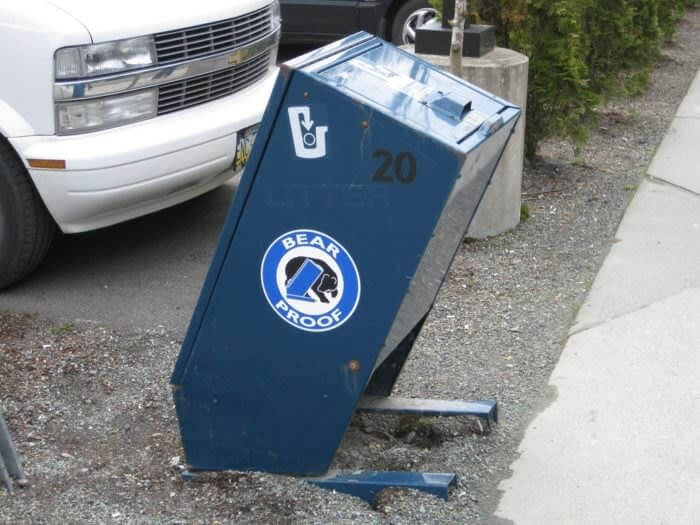
The city of Anchorage passed a new rule that trash cans cannot be left out overnight to protect the residents from bear encounters. Even if the bins have locks on them, people will get fines for leaving them out longer than 12 hours.
30. There Is A Yearly Race With Reindeer
Each year, Anchorage holds the annual Running of the Reindeer Race. Participants are split into "herds," which include boys, girls, couples/teams, and tourists. The purpose is to outrun the reindeer, and the event is to raise funds for Toys for Tots. The day is filled with fun for the whole family.
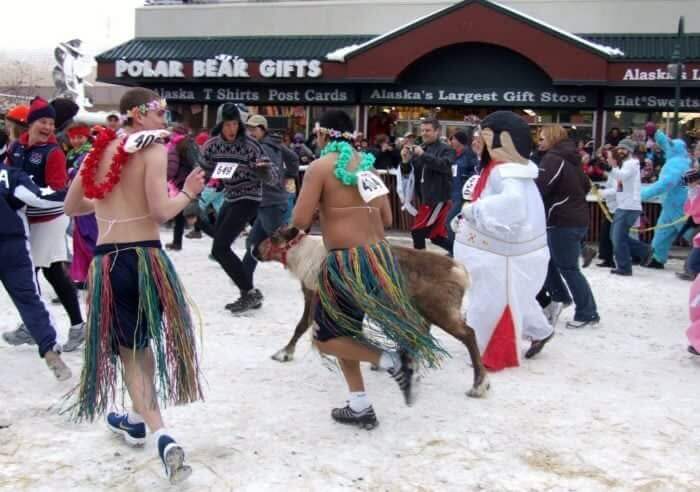
On the same day as the reindeer race, the Iditarod also has their ceremonial start in Anchorage, so there are many things to see on race day. People dress up in whacky costumes, and everyone gets into the spirit because it is for a good cause.
31. Alaska Has An Annual Outhouse Race
Many kooky events take place in Alaska, and one of them is the running of the outhouses. People take their port-o-potties, strap a pair of skis to the bottom, and get ready to run. Participants get points for design and engineering to make the most creative toilet.
People can win many awards, including the best design, cleanest, and the fastest outhouse. You can find out if you are the real king or queen of the throne. The University of Anchorage hosts the event, and proceeds benefit Habitat for Humanity.
32. People Have Been Living in Alaska For 15,000 Years
Alaska has the largest concentrated indigenous population in the US. The indigenous people, who are also known as Alaska Natives, are divided into five major groups, Aletus, Northern Eskimos (Inupiat), Southern Eskimos (Yuit), Interior Indians (Athabascans), and Southeast Coastal Indians (Tlingit and Haida). The native people comprise 24 percent of the state's population.
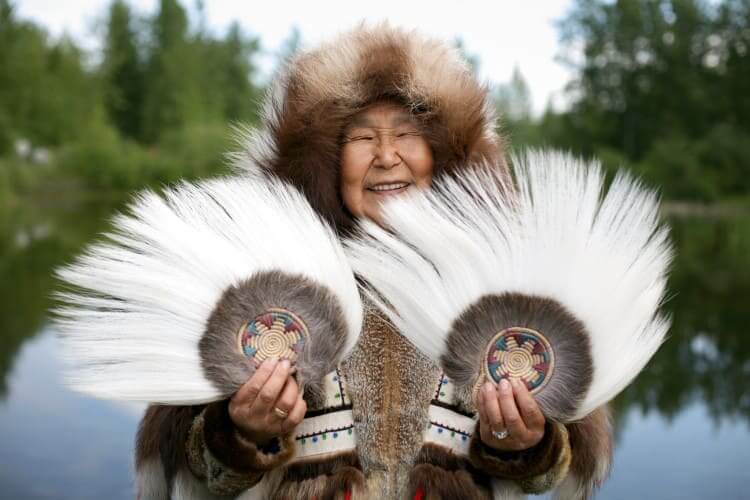
The Alaska Natives continue to hunt and fish among 200 villages as well as harvest animals such as seals, whales, polar bears, and sea otters. There are 20 indigenous languages spoken in Alaska. These groups have struggled through history as the land became colonized, but now there are laws to protect them and their way of life.
33. Alaska Has The Fourth Busiest Air-Freight Airports In The World
Here is a fun fact, Anchorage, Alaska, is almost equal distance between Tokyo, Frankfurt, and New York City. This means that 90 percent of the world's industry is accessible from Anchorage by a 9.5-hour flight. The Anchorage International Airport is a primary free-living and loading site for air-freight.
FedEx and other global networks call Anchorage their home because of how connected it is to the rest of the world. Also, more than one percent of the population has some level of pilot certification because many places are only accessible by air or water.
34. Alaska Is Home To The World's Largest Chocolate Fountain
As the largest state in the country, it is only fitting that Alaska is home to the world's largest chocolate fountain. The Alaska Wild Berry Products factor in Anchorage completed the fountain in 1994 when the flagship store was constructed. The falls churn out 3,400 pounds of liquid chocolate, but it isn't for eating.
The chocolate for the fountain is donated by Peter's Chocolate Division of Nestle Foods. In the factory, people can also see the many different kinds of chocolate confections being made behind glass. Visitors can buy freshly made chocolates in the store attached to the factory. Wild Berry Products are exclusively sold and made in Alaska.
35. Juneau Has No Access Road To The Rest Of The State
Juneau, Alaska, is the only capital in the US that residents cannot access by car. Alaska is known for being quite remote and sparsely populated, so it is rather fitting that the capital can only be accessed by plane or ferry. Despite the remoteness, Juneau has plenty of nightlife and things to discover.
While it can only be accessed by plane or ferry, Juneau is not the busiest seaplane base. Anchorage is the most active with about 800 takeoffs and landings on a busy summer day.
36. There Is A Place Where You Can Feel The Earth Move Under Your Feet
Alaska is an earthquake hotspot, and in Anchorage, you can visit the site of one of the most catastrophic earthquakes that changed the landscape forever. In 1964, there was an earthquake that measured a 9.2 on the Richter scale, and the area was swept into the ocean.
The park commemorates the event, and it is a beautiful place to walk around and have a picnic. In the winter, people come for cross-country skiing, but the site is really to remember the earthquake the left so much damage to Alaska and surrounding areas.
37. There Is A Museum Dedicated To Just Hammers
In Haines, Alaska, you can visit the Hammer Museum that was founded in 2002 and features over 1,400 hammers and other related tools. The hammers range from ancient times through colonial days to the industrial era. Dave Pahl established the museum after he became a blacksmith and started collecting hand tools over the years.
Pahl and his wife transformed the 100-year-old building, and it features several galleries featuring hammers used for blacksmith, early trades, and hammers used to serve bankers, nightclub goers of the 1920s, and medical professionals.
38. Alaska Has Multiple Nicknames
Alaska has many different nicknames including "the great land," The last frontier," "Land of the midnight sun", and "the mainland state" Whatever nickname you use when talking about Alaska, just know that it is one of the nations most beautiful and charming places to visit that shouldn't be taken for granted.
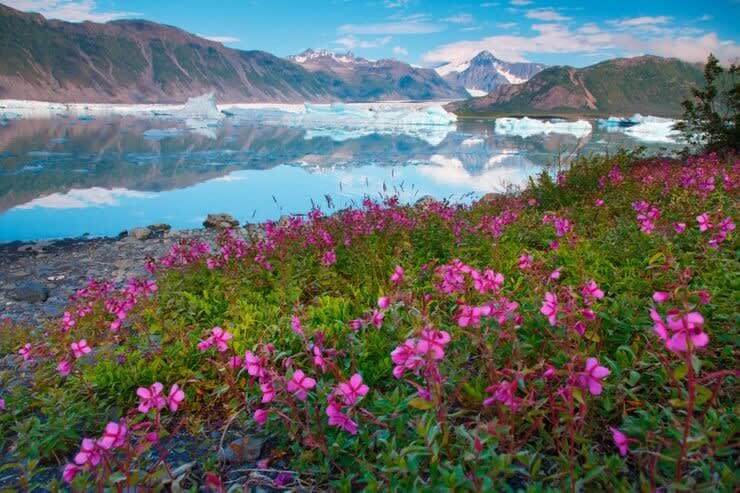
If you are ever considering a place to travel in the US, Alaska should be at the top of your list. There are a plethora of things to do there, and you will never be bored with everything it has to offer.

